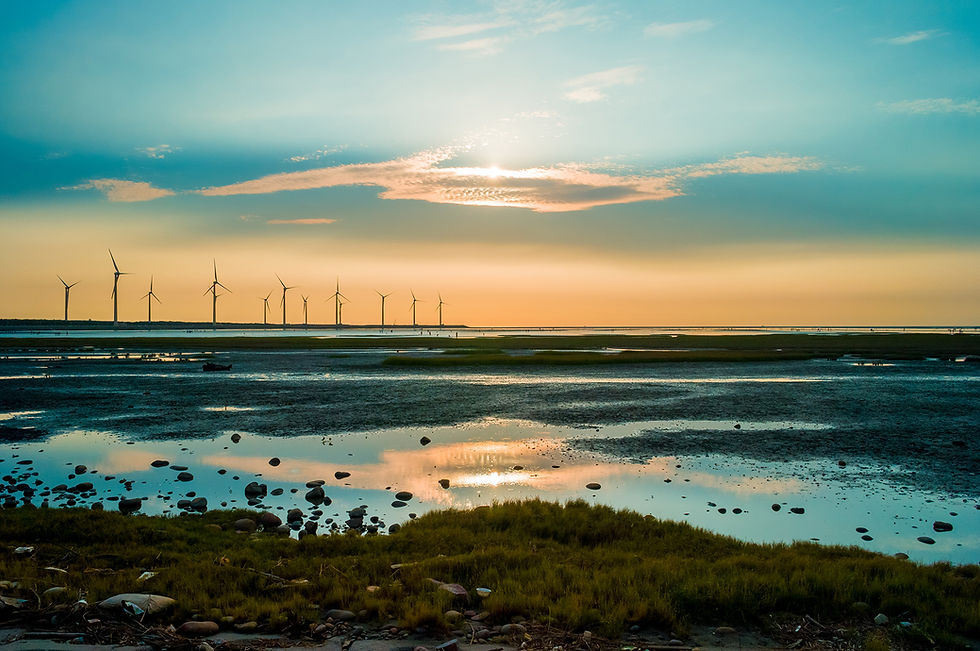Australia: Still the Lucky Country
- Michi Marosszeky
- Apr 20, 2022
- 4 min read
I was expecting to see the regular crowd walking the streets when I left my home this Friday: young families pushing prams, the occasional jogger, and university students on their way to class. However, scattered amongst these people was another familiar sight—school children clutching homemade signs on their way to yet another climate strike. Perhaps, the news cycle over-load of world tension, destruction, and death had made me inattentive—of course, today, March 25th, was another day of climate protest in preparation for Earth Day (22 April). It is sad and ironic that it’s young children who are gathering at the gates of Kirribilli House. Sadly, the sight of the protesting children hadn’t filled me with hope; my thoughts tossed and turned until, finally they were spiked by one sentence: “Come on, we’re still protesting?”

Voices in favour of climate action seem to consistently fall on deaf ears, something that’s no surprise given that the Murdoch media empire rarely, if ever, draws attention to this issue. And our Prime Minister, well, he believes in the power of coal and miracles. Bringing a lump of coal into parliament house—an act of defiance towards climate-conscious Australians—is symbolic of his trust in the future of mining and complete ignorance of climate science. Presently, we are seeing much animosity between left and right-wing voters, particularly around climate change—echoing the famously divided political climate of America. I could spend the rest of this blog roiling with frustration, along with so many others, due to Australia’s climate policy or lack of it—but doubt, it would be productive. Instead, I’ll be the broadcaster of more positive news and reframe the discussion as ‘climate revolution'. Here are a couple of Australian innovations with amazing potential to immensely reduce greenhouse gas emissions. Society as a whole is experiencing an exciting, albeit tense, period of transition. We’re simultaneously, dealing with the aftermath of a global Covid shutdown and rapid developments in all types of technology, from electric cars to super smartphones. The pursuit of green energy has professionals all over the world leaning into new and innovative technology, some of which are happening on Australian soil.

Ways to combat climate change are being explored worldwide, and Australians, like the team in the Tasmanian company Seaforest, are focusing on innovative ideas. Globally, the agriculture industry is responsible for 22% of greenhouse gas emissions. A portion of this comes from the methane that ruminant livestock release through belches and, for lack of a better word, farts. However, there is a solution, Asparagopsis. This a seaweed that effectively captures carbon from the atmosphere, and reduces methane production in ruminating animals when introduced into their feed. Seaforest is currently growing the world’s first commercial-scale crop. They have created a supplement for ruminant livestock and if an animal diet consists of 0.2% Seaforest’s supplement, then its methane emissions drop by 98%. Initiatives like the work at Seaforest are essential to our future as they tackle multifaceted issues in a way that isn’t disruptive to our current model of living. Seaforest, what an incredible enterprise to have in Australia: a product that neutralises the negative impacts of an industry that is fundamental to our economy and rural identity.

Through his splendid bush poetry, describing “billabongs”, “saltbush plains” and rivers like “the Snowy River ……….. Where the hills are twice as steep and twice as rough”, Banjo Paterson, a turn of the century Australian poet icon, pays homage to our country’s beauty and versatility. Heading into a global era of sustainable energy, our century can, and should, continue to marvel at the diverse richness of our country. We are the lucky country: we have a high yielding climate for solar, wind and hydroelectric energy, however, we are also one of the world’s largest coal traders. The Port of Newcastle is the largest coal exporter in the world and coal has been a major contributor to Australia’s economy. Whilst the coal industry has been fundamental to our early society, its time has expired. The Port of Newcastle is aware of this and has plans to convert to a ‘green-hub’, exporting hydrogen energy instead of coal— the shift will skyrocket Australia’s profile. Of course, hydrogen is still, only, an emerging technology, since, presently, it is as taxing on the environment as coal. The plan is to fuel hydrogen plants through solar and wind farms, however, to develop these necessary technologies, the Newcastle Port Authority will need funds—funds over which the oil and coal monopolies have the ultimate say. Despite this minor hic-cup, it is encouraging to know that grassroots movements are working tirelessly towards a cleaner future for our beautiful country.
Unfortunately, at times, the media does portray the world as a quarrelsome place, dominated by loud, negative voices, and though we must be able to face and accept difficult situations, it is also important to be aware of the quiet achievers, hustling in the background—working confidently and relentlessly to ensure a safe future for our planet and all those who dwell on it.
See below for links and resources:

Link to Seaforest’s website: https://www.seaforest.com.au/
Link to the Port of Newcastle’s sustainability initiative: https://www.portofnewcastle.com.au/sustainable-port/our-commitment/
Help is available.
If you require immediate assistance, please call 000.
If you are in distress, please call Lifeline on 13 11 14 or chat online.
Have something on your mind? You can reach out to BeyondBlue at 1300 22 4636 or chat online.
Under 25? You can reach Kids Helpline at 1800 55 1800 or chat online.









Comments